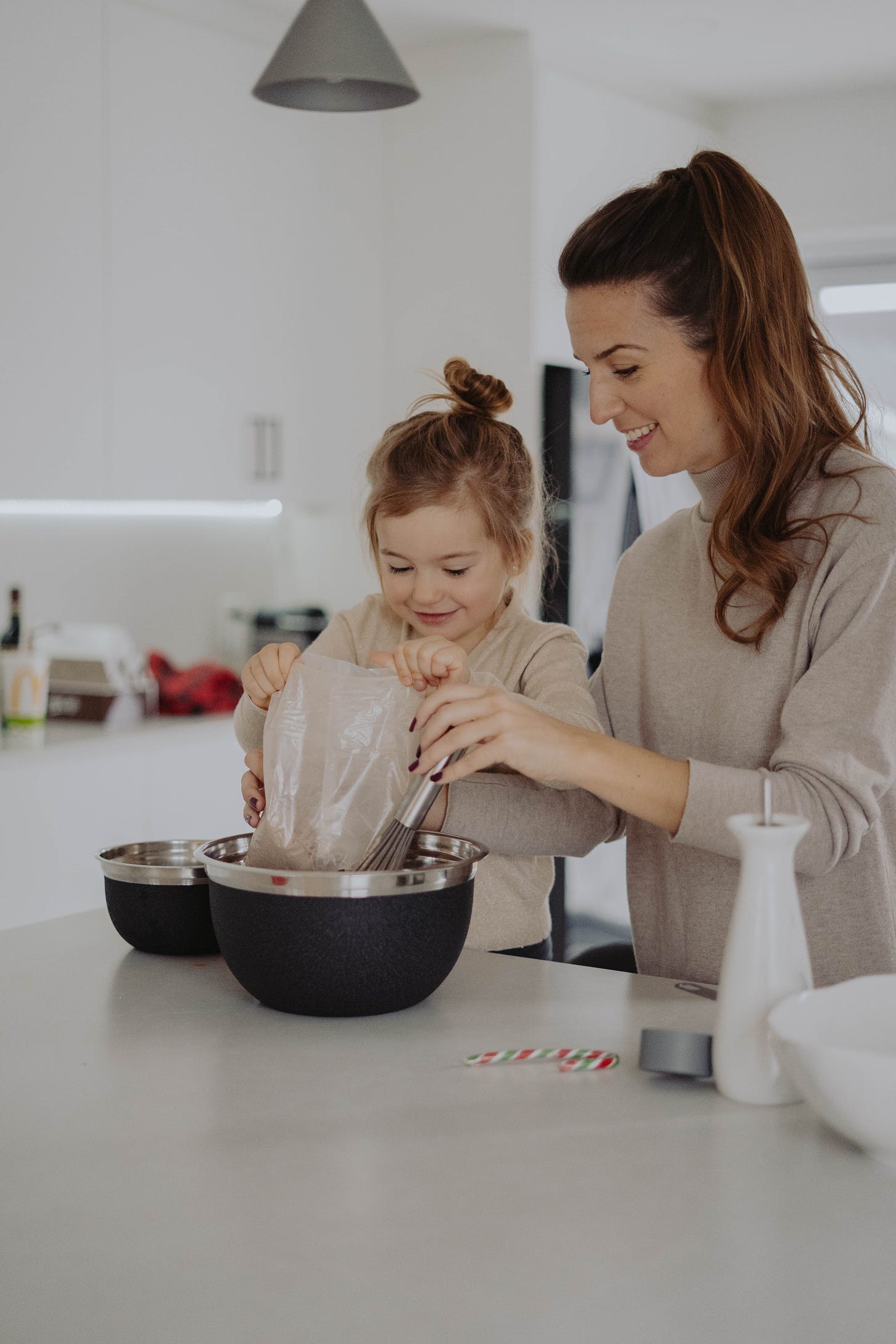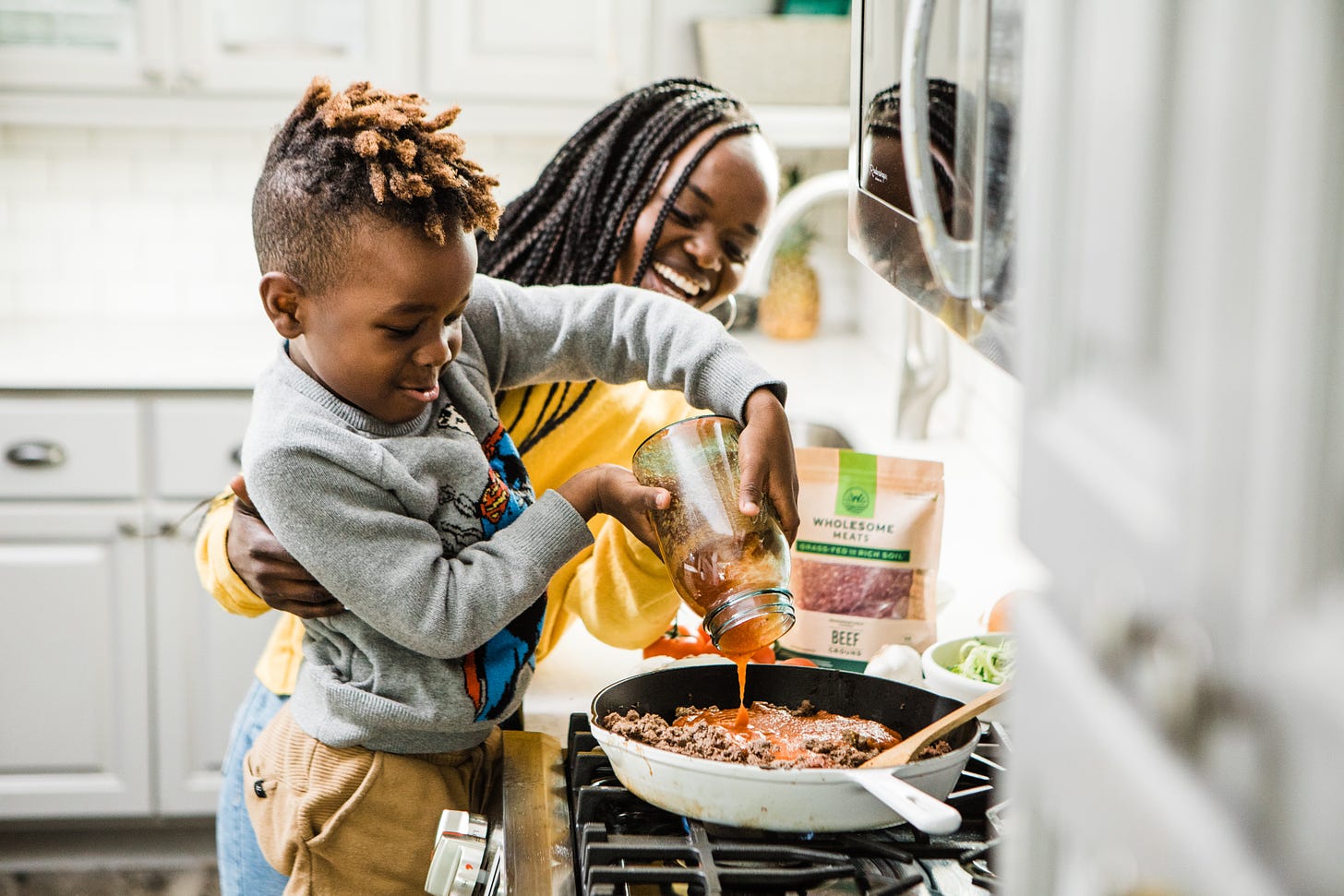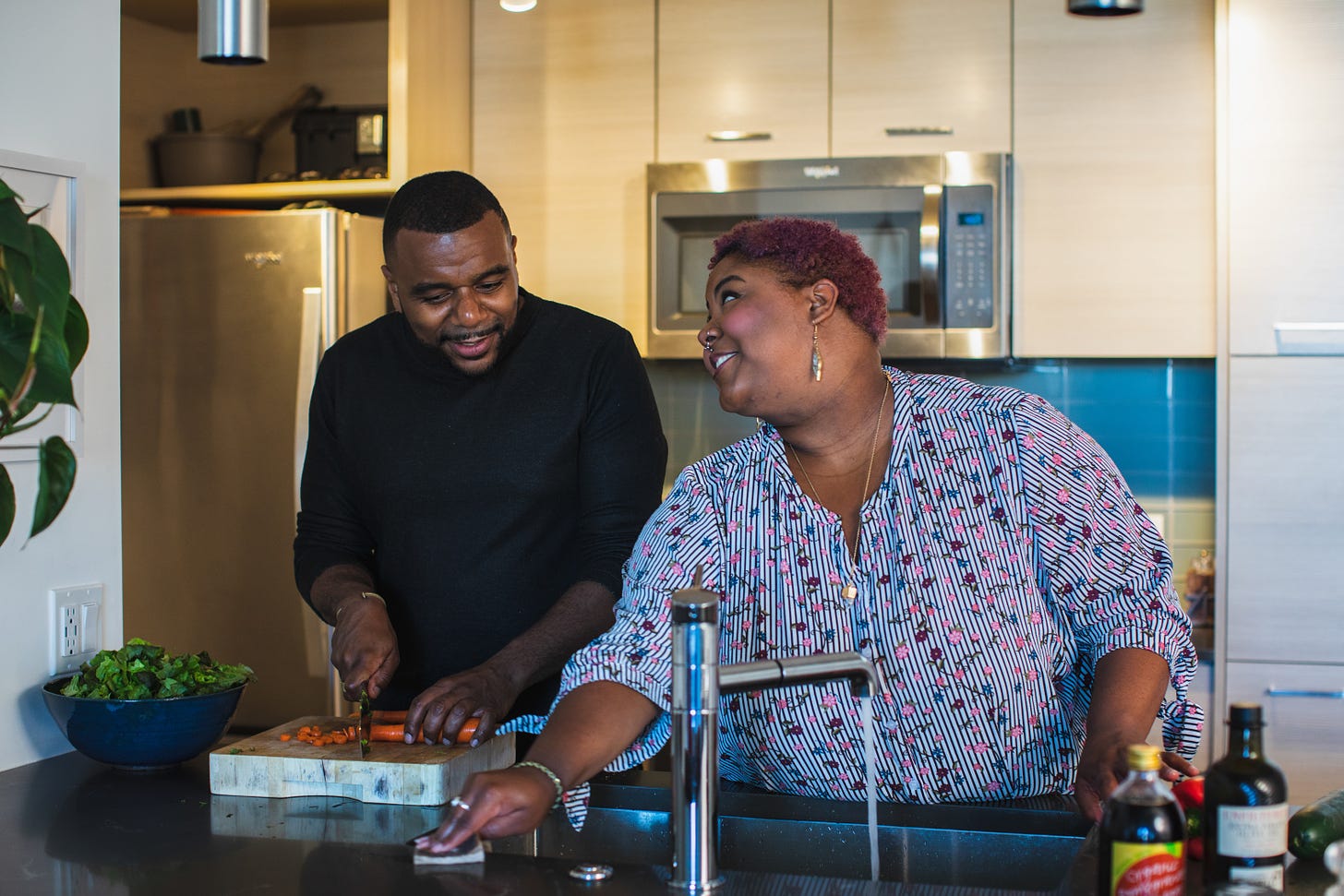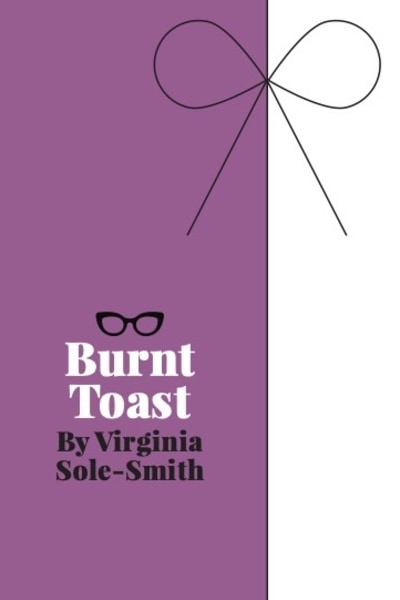Book Research Roundup: Mamas On Diets
And the complicated history of kids' bodies and mother blame.
It’s time for another research round-up! (Here’s the last one, in case you’re wondering what this is all about.)
Over the past month, I’ve been writing a chapter about and for mothers — because we are, inevitably, who get blamed when children struggle with food or body issues. And, all too often, we are struggling ourselves.
But the history of Mother Blame is a long and complicated one. And just because a mom (or any parent and, yes, there is a dad chapter, too) struggles, doesn’t mean she’ll automatically raise kids who have eating disorders of their own.
What follows is a Burnt Toast-tailored version of my reporting notes and Zotero folder. Some of it will inform what goes into this chapter; some of it is just random and interesting. If you are a person who is a mom, has a mom, or is interested in the complicated intersection of mothering, food, and bodies, I think you’ll find this useful.
CW: Many of the articles I link to use weight-stigmatizing language because science is full of anti-fat bias and so is media coverage about moms. There is also one reference to suicide. Take care of yourself!
The History
“Dominant and intrusive” and also “overbearing and scolding” moms have been blamed for their children’s anorexia since psychiatrists first began to understand it as a mental health condition in the 1950s. (In contrast: Dads are “briefly characterized as passive and ineffectual figures who play a minor role in the family structure.” Never doubt the insecurity of the mediocre white male psychology researcher!)

This 1980 case study (paywalled, sorry!) on “abnormal mothering in the genesis of anorexia nervosa” is also a wild read. Key point: “Pathological mothering has been emphasized particularly in the genesis of the condition in males.” Translation: Boys wouldn’t get eating disorders if their moms weren’t batshit. (Or “nervy” as this researcher puts it.)
Yale University researchers continued to blame mothers in 1991. (They based this on a study of just 41 teenage girls.)
This research conversation finally started to change with Kevin Thompson’s development of the Tripartite Model in 1999 (again paywalled), which frames eating disorders and related struggles as the result of a combination of influences — parents, peers, and media.
But don’t worry! That’s right around when we doubled down on the moral panic that mothers, especially working mothers, are to blame if their kids are fat. (Last paywall, I promise, and here’s a podcast episode you can hear for free with the great Natalie Boero, discussing this work.)
In 2011, Marie Caro killed herself after her daughter, the French model Isabelle Caro, died from her eating disorder. The Guardian’s Barbara Ellen called for mom blaming to stop.
Where We Are Now
In the past decade, the eating disorder community has pushed back hard against the idea that mothers cause eating disorders:
Eating disorders are not chosen. They are not a reaction to a bad parent, or a trauma, or coping mechanism any more than cancer is. Anorexia is a biological brain-based illness. If my parents had any part to play in my development of the disease, it happened at conception when they played their part in coding me.
But this doesn’t tell the whole story either. Biology interacts with our environment. And, as I wrote for the New York Times in 2019, moms who have been through the physiological wringer of conception, pregnancy and childbirth are very likely struggling with their own body stuff.
One new study by British researchers found that 15.3 percent of women will have had an eating disorder by the time they get pregnant.
In an earlier study of 739 moms-to-be, the same researchers found that while only 7.5 percent met criteria for a current eating disorder, nearly one in four reported high levels of concern about their weight and body shape.
Here’s Alyson Gerber writing beautifully about her eating disorder relapse during pregnancy.
Here’s a great podcast about eating disorders during pregnancy.
The pandemic made all eating-related struggles worse, but especially for moms, as I reported for the NYT in 2020.
This 2015 study was the first to include fathers in an assessment of the body image of 4-year-olds. Guess what! They also have an impact! (Especially on boys.)
So How Do Moms Impact Kids?
In this study of 581 parents, 76 percent reported regularly engaging in “fat talk” about themselves in front of their kids, and 43.6 percent said they talked about their child’s body in negative ways. Not shocking: Parents body shaming their kids correlated with an increase in kids’ disordered eating behaviors.
Moms who diet, have firmly internalized the thin ideal, or are otherwise dissatisfied with their bodies (so, like, everyone!) are more likely to have preschoolers who think fat is bad. (Also this one.)
The Parts Nobody Talks About
Moms diet, internalize weight bias, and pass all of this onto our kids because we equate health with thinness and dieting—and in our world, health is cultural capital. (If you read no other link on this list, read this one!)
We also need to think about how the mental load of meal planning, of lunchboxes intersects with how moms parent kids around food.
The tyranny of the Organic Child.
Moms also have trauma. It shows up in how we feel about and interact with our bodies.
This shit is intergenerational. The great-grandmothers and the grandmothers were not okay.
But now we also have Instagram. Always read Sara Louise Petersen and Kathryn Jezer-Morton on this.
And: Kate Baer wants to know why moms aren’t rioting in the streets.
What We Can Do Instead
Give yourself permission to take care of yourself. I think all the time about the mom who told me in this story:
Sometimes I need comfort, like cookies or a cocktail. Sometimes I feel like this rage inside me will not be quelled that way, and I need to go for a super long walk. They are both important.
Change how you talk before you change what you’re doing. Kendrin Sonneville, Sc.D., R.D., an assistant professor of nutritional sciences at the University of Michigan School of Public Health offers this advice:
Don’t talk about losing weight, don’t label foods as good or bad and do communicate to your children that their body weight is not their worth. The words you use really matter.
And ask yourself why you’re forcing yourself to do something you’d never want for your kids. As Rebecca Scritchfield, MA, RDN, told me:
“If you’re feeling like, ‘I need to hide my diet from my kids,’ maybe what you’re really saying is, ‘I don’t want to do this but I don’t know what else to do.”
Setting boundaries also helps.

Mom Reading List
Pressure Cooker: Why Home Cooking Won’t Solve Our Problems and What We Can Do About It by Sarah Bowen, Joslyn Brenton and Sinikka Elliott
Brave Girl Eating by Harriet Brown
Food and Femininity by Kate Cairns and Josee Johnston
Like A Mother by Angela Garbes
Taking Up Space by Alyson Gerber
Heavy by Kiese Laymon
Belabored by Lyz Lenz
All The Rage by Darcy Lockman
Mothers, Daughters & Body Image by Hillary L. McBride
Already Toast: Caregiving and Burnout in America by Kate Washington
The Gift Of Good Email
This holiday season, give the gift of anti-diet journalism! You can give a $5 one-month stocking stuffer, or a $50 year-long membership. Your recipient will get my essays and podcast interviews, plus subscriber-only perks like Ask Virginia columns and Friday Threads.
You can schedule your gift to arrive on any date you like (there’s a link below the message box). And to make it even more festive, you can download and print this gift certificate for your recipient:
Newsletters make truly fantastic gifts because we are always size-inclusive, eco-friendly, and have no supply chain issues! And since we’re on the subject of moms today, here are my two favorite parenting newsletters to read and to give:
Melinda Wenner Moyer’s Is My Kid The Asshole? uses science to answer our burning questions about how to raise a good human. Give Melinda’s work to a parent overwhelmed by toddler tantrums or trying to figure out how to teach consent, because she covers it all.
Claire Zulkey’s Evil Witches is the newsletter for people who happen to be mothers. Give EW to all the moms on your group text (no, not the group text where people debate sleep training philosophies; the one that you send gifs to when you’re procrastinating on actually picking up your kids at the end of the day.)






This is only tangentially related, but so very much on my mind that everything about parents and diet culture makes me think of it: I had a lightning bolt realization while my mother was here for Thanksgiving. My mom's position, as far as I understand it, is that one should be actively hungry the vast majority of the time. Not just not full/could eat, but *hungry.* I also have a lot of struggles with my mom where she, for instance, asks me for help with tech and then gets incredibly upset to the point of being physically shaky, and needs to stop trying to deal with whatever minor problem we're addressing. It's a real hassle.
And it suddenly occurred to me, when I'm hungry, my executive function declines. I lose focus. I get easily frustrated. How much of my mother's problems with things like making Zoom or her phone work are because she is just too hungry to do a challenging task right then? But there's no way to say this to her, because the grandparents are not ok...
Thanks for this! I'm a new subscriber and excited about all of the great content here. This might be a niche concern, but just for what it's worth: I'm an adoptive parent who shares food/body/nutrition concerns with my mom-friends who had their kids biologically. (Not that there aren't differences, such as our not having complete medical histories, but bio-moms may lack some of this information too.) In your post, you express empathy for mothers who have "been through the physiological wringer of conception, pregnancy, and childbirth"--and rightly so, of course! You don't mention (and few writers do) mothers like me, who have been through our own wringer of multiple miscarriages and failed fertility treatments, which also take a physiological and psychological toll. Anyway! This is not a critique, just a reminder that part of your readership might have experiences slightly divergent from what you identify here.